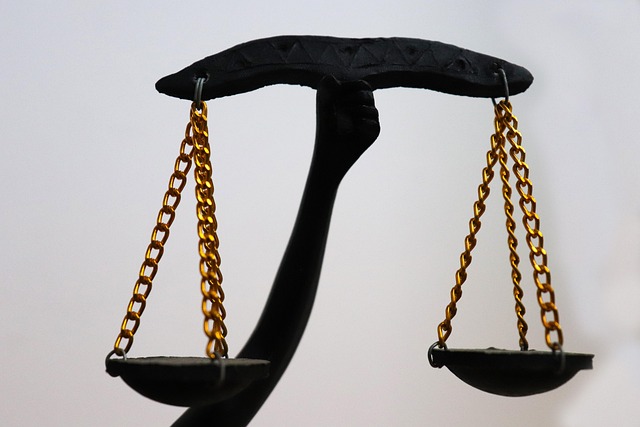Protecting grandparental rights in Oregon is crucial for maintaining family connections and preserving relationships. Grandparents must file a petition, demonstrating a pre-existing bond and their ability to provide stable care. The process involves court hearings, where evidence of the grandparent-grandchild relationship is presented, with decisions based on the child's best interests. Challenges include contested custody, navigating legal procedures, and determining reasonable visitation. Support from organizations like GLRA, community centers, and legal aid groups helps grandparents advocate for their rights in Oregon.
In Oregon, understanding and protecting grandparental rights is crucial for maintaining family connections. This article guides you through the legal landscape of grandparental rights, clarifying who qualifies for protection and outlining the petitioning process. From common challenges to available resources, we provide insights into navigating complex cases. Learn essential steps to safeguard grandparents’ relationship with their grandchildren, ensuring a strong legal foundation in Oregon. Discover advocacy groups and resources dedicated to supporting your rights as a grandparent.
- Understanding Grandparental Rights in Oregon: Legal Framework
- Who Qualifies for Grandparental Rights Protection?
- Petitioning and Legal Processes: Steps to Protect Grandparentship
- Common Challenges and Disputes: Navigating Complex Cases
- Supporting Resources and Advocacy for Grandparental Rights
Understanding Grandparental Rights in Oregon: Legal Framework

In Oregon, grandparental rights are recognized and protected by law, providing a framework for maintaining family connections. The state’s legal system ensures that grandparents have the opportunity to participate in their grandchild’s life, fostering strong family bonds. Understanding these rights is crucial for both grandparents and parents, as it outlines the processes and guidelines for seeking access, visitation, and custody.
The legal framework surrounding grandparental rights in Oregon is designed to balance the interests of all parties involved, including the child’s best interests, parental decisions, and the desire to preserve family relationships. The process often involves court proceedings where grandparents can petition for rights, and parents are encouraged to cooperate in facilitating healthy interactions between grandparents and grandchildren. Protecting grandparental rights ensures that families can navigate these situations with fairness and respect for everyone’s roles within the family unit.
Who Qualifies for Grandparental Rights Protection?

In Oregon, grandparental rights protection is a crucial aspect of family law, ensuring that grandparents have a legal avenue to maintain significant relationships with their grandchildren. To qualify for such protection, individuals must establish a pre-existing parent-grandparent relationship and demonstrate their ability to provide a stable and loving environment for the child. This often involves showing consistent contact, care, and concern for the grandchild’s well-being over an extended period.
The state recognizes that grandparents play vital roles in their grandchildren’s lives, offering love, guidance, and unique perspectives. Therefore, grandparental rights protection is designed to safeguard these relationships when family dynamics change due to divorce, death of a parent, or other circumstances. By legal means, grandparents can seek visitation rights, custody arrangements, or even joint guardianship, ensuring their continued involvement in the child’s life while also respecting the primary caregiving roles of parents.
Petitioning and Legal Processes: Steps to Protect Grandparentship

When it comes to petitioning and legal processes in Oregon, protecting grandparental rights involves several crucial steps. The first is to file a petition with the appropriate court, usually the county court where the child resides. This petition should clearly state the grounds for seeking visitation or custody rights, along with any supporting documents that establish a significant relationship between the grandchild and the grandparents.
Once the petition is filed, the court will schedule a hearing where both parties can present their cases. It’s essential to prepare thoroughly by gathering evidence, such as photographs, letters, or other correspondence that demonstrates the strength of the grandparent-grandchild bond. During the hearing, a judge will evaluate the request based on the child’s best interests and the grandparents’ rights, ensuring a fair and just outcome in line with Oregon’s laws protecting grandparental rights.
Common Challenges and Disputes: Navigating Complex Cases

Navigating grandparental rights protection in Oregon can be a complex process, often fraught with challenges and disputes. Common issues include contested custody battles where grandparents seek visitation or partial custody, especially when there are competing interests from parents who may be reluctant to share care. These cases often require careful navigation through intricate legal procedures and emotional terrain.
Another significant challenge is understanding the specific laws and regulations in Oregon that govern grandparental rights. State statutes provide a framework for such cases, but each situation is unique. Legal complexities arise when determining what constitutes reasonable visitation, especially in situations where parents have moved away or changed circumstances significantly. Disputes may also stem from disagreements about the best interests of the child, which can be subjective and require detailed presentations of evidence and testimony during court proceedings.
Supporting Resources and Advocacy for Grandparental Rights

Protecting grandparental rights in Oregon is a complex legal landscape, but numerous resources offer support and advocacy for families navigating these challenges. Organizations like the Grandparents Legal Rights Association (GLRA) provide crucial information and assistance to grandparents seeking to maintain relationships with their grandchildren. These groups offer legal referrals, educational workshops, and networking opportunities to empower grandparents in advocating for their rights.
Additionally, local community centers, churches, and legal aid organizations often host support groups and webinars dedicated to discussing grandparental rights protection in Oregon. These platforms facilitate connections between families facing similar issues, fostering a sense of community and shared understanding. With the help of these resources, grandparents can access vital information, connect with like-minded individuals, and explore advocacy strategies to safeguard their parental relationships.






